Sometimes you grab an old bottle of drops from the back of your cabinet and wonder, Is it ok to use eye drops that are expired? Maybe your eyes are burning, itchy, or just dry, and that little bottle feels like a quick fix. But then the doubt hit, are you helping your eyes, or could you actually make things worse? It’s a frustrating situation that almost everyone with eye drops has faced at least once.
In this blog, we’ll clear up the confusion and give you a straight answer. You’ll learn why expiration dates matter, what risks come with expired drops, and how to know if your bottle is still safe to use. By the end, you’ll have practical tips and peace of mind so you can protect your eyes with confidence.
Why Do Eye Drops Expire?
Every bottle of eye drops has an expiration date for a reason. Just like food or prescription medication, the active ingredients break down over time, reducing potency and making the formula unstable. This means they may no longer work effectively for conditions like dry eyes, redness, or infections.
Expiration dates also protect you from contamination. Eye drops are designed to be a sterile solution, but after a certain point, preservatives weaken. That leaves room for harmful bacteria, fungi growth, or microorganisms to enter and multiply. Using old drops can mean risking an infection instead of finding relief.
Factors Impacting Post-Expiration Efficacy
Several things affect how well eye drops hold up after their expiration date. Chemical instability is a big one; ingredients can lose their balance, leading to reduced potency and possible irritation. Even unopened bottles can experience active ingredient breakdown as they sit over time.
Storage conditions matter too. If bottles are left in hot cars, damp spaces, or direct sunlight, heat breakdown accelerates the expiration process. Keeping them in a cool, dry place is essential if you want them to last their full shelf life.
Read more Article:Presents That Start With AB
Types of Eye Drops
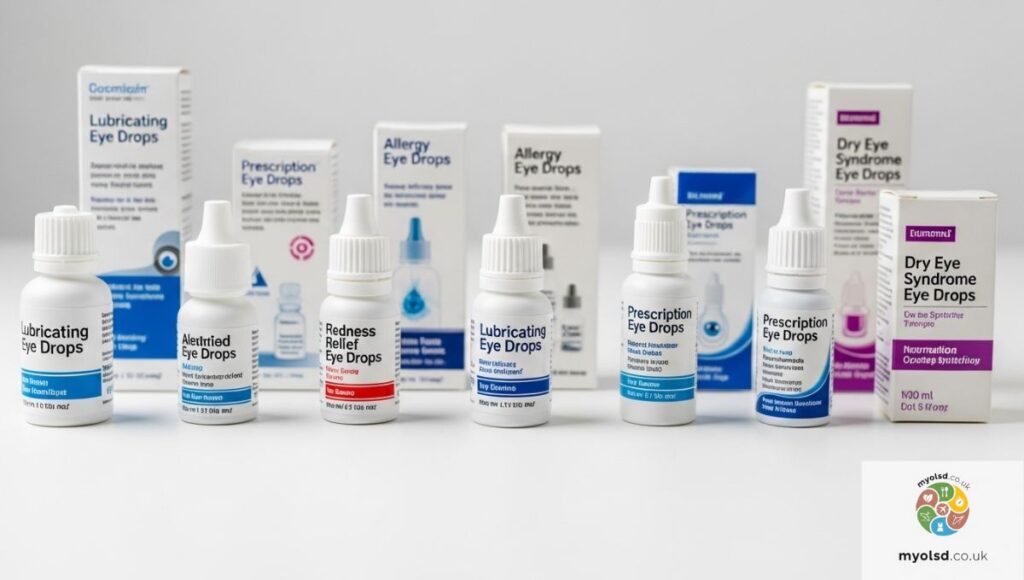
Preservative-Free Eye Drops
These are popular for people with sensitive eyes or chronic dry eye. They usually come in single-use vials since there are no preservatives to maintain sterility once opened. While gentle, they must be discarded quickly, often within 24 hours, because they spoil faster.
Eye Drops with Preservatives
Multi-use bottles usually contain preservatives to extend shelf life. While they last longer, the preservatives themselves can eventually break down, losing effectiveness against bacterial contamination. Once this happens, the risk of irritation or infection increases.
Antibiotic Eye Drops
Antibiotic drops (like moxifloxacin, ciprofloxacin, or tobramycin) are powerful but lose their ability to fight eye infection after expiration. Using them past the date can mean prolonged infection or worsening symptoms. Prescription strength drops should never be saved just in case.
Steroid Eye Drops
These are often prescribed after surgery or for inflammation. Expired steroid eye drops carry risks of compromised safety and chemical changes that can cause more harm than good. Always follow your prescriber’s advice on these.
Why Do Expiry Dates Matter for Eye Health?
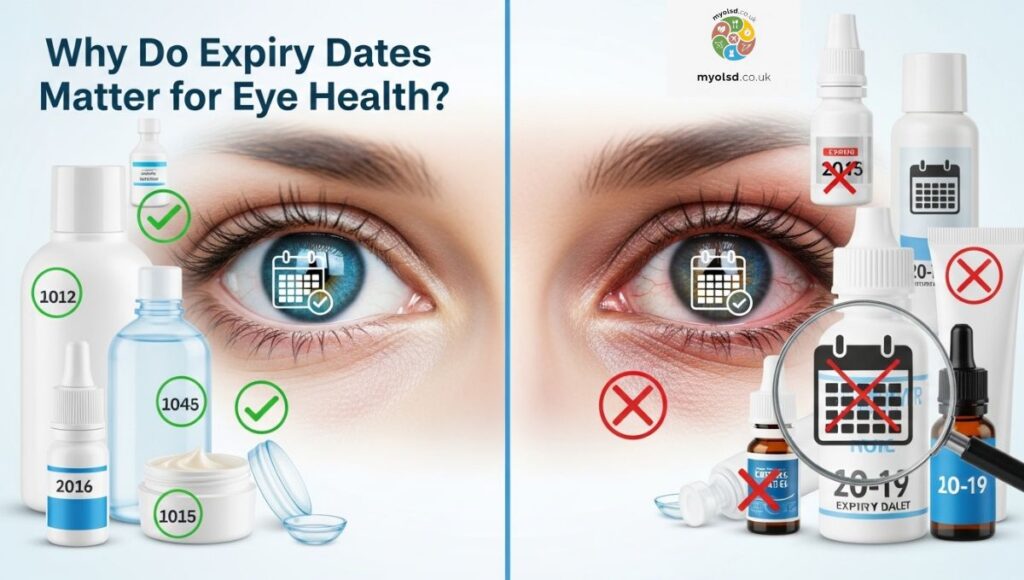
Expiry dates aren’t just random numbers they’re based on stability testing that checks how long a formula stays effective and sterile. Beyond that point, the chemical balance can shift, preservatives lose power, and contamination risk rises.
For eye health, this is especially serious. Your eyes are delicate, and introducing contaminated or unstable liquid can cause irritation, blurred vision, a stinging sensation, or even permanent vision damage in severe cases.
Will Expired Eye Drops Still Work?
Expired drops often don’t provide the relief you expect. For example, lubricating drops may no longer soothe dry eyes, and antibiotic eye drops may not kill harmful bacteria effectively. This loss of potency can lead to prolonged symptoms.
Even if they look fine, expired bottles might hide invisible contamination or chemical instability. So while they may work a little, they’re not reliable or safe for treatment.
Potential Consequences of Using Expired Eye Drops
Using expired drops isn’t just about reduced effectiveness there are bigger risks:
- Ineffective treatment: Antibiotic eye drops may fail to fight infections.
- Eye irritation: Changes in chemical stability can cause burning eyes or stinging sensations.
- Infection risk: Bacterial contamination may lead to redness, discharge, pain, and swelling.
- Vision consequences: In extreme cases, unsafe use could damage eye tissue or cause vision loss.
Think of it like drinking expired milk; it might look okay, but the hidden risks aren’t worth it.
Read more Article:Presents That Start With AB
Determining If Expired Eye Drops Are Still Safe
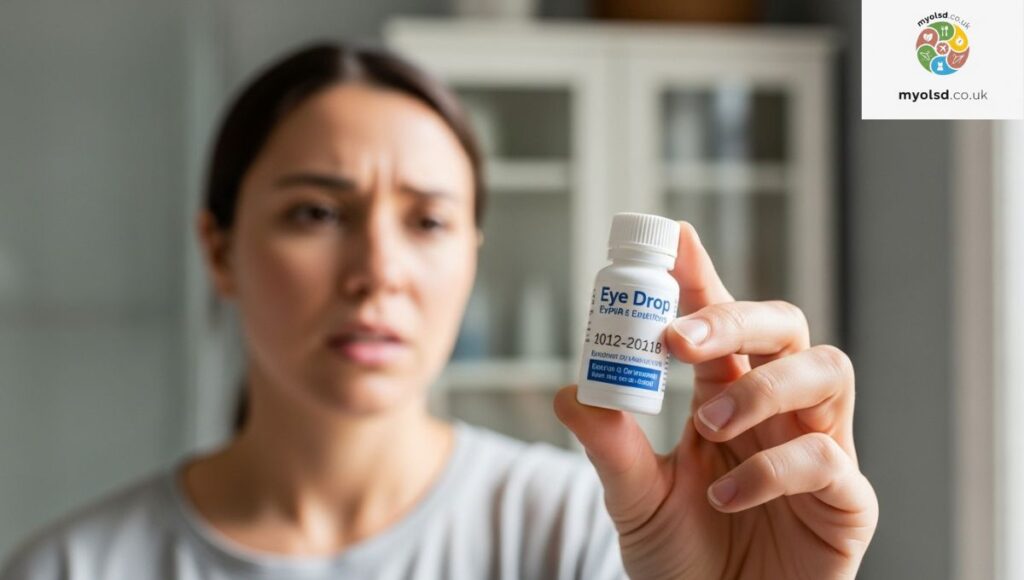
There are warning signs that your eye drops aren’t safe, even before you check the expiration date:
- Cloudy liquid or discoloration
- Foul odor or sour smell
- Grainy texture or thicker consistency
- Residue buildup or crust formation around the bottle cap
- Blurred vision or unusual discomfort after use
If you spot any of these, don’t take chances. Discard the bottle.
Proper Storage & Handling of Eye Drops
Good storage habits can extend the shelf life of your drops:
- Keep them in a cool, dry place away from heat or sunlight
- Refrigeration storage may be required for certain prescriptions (check pharmacy instructions)
- Always close the cap tightly to maintain the sterile seal
- Don’t touch the dropper tip to your eye, fingers, or surfaces it increases contamination risk
- Track the opened date and follow the 28 to 30-day rule for multi-use bottles
For preservative-free vials, always discard after one use, even if liquid remains.
Can You Use Expired Eye Drops? Learn the Risks
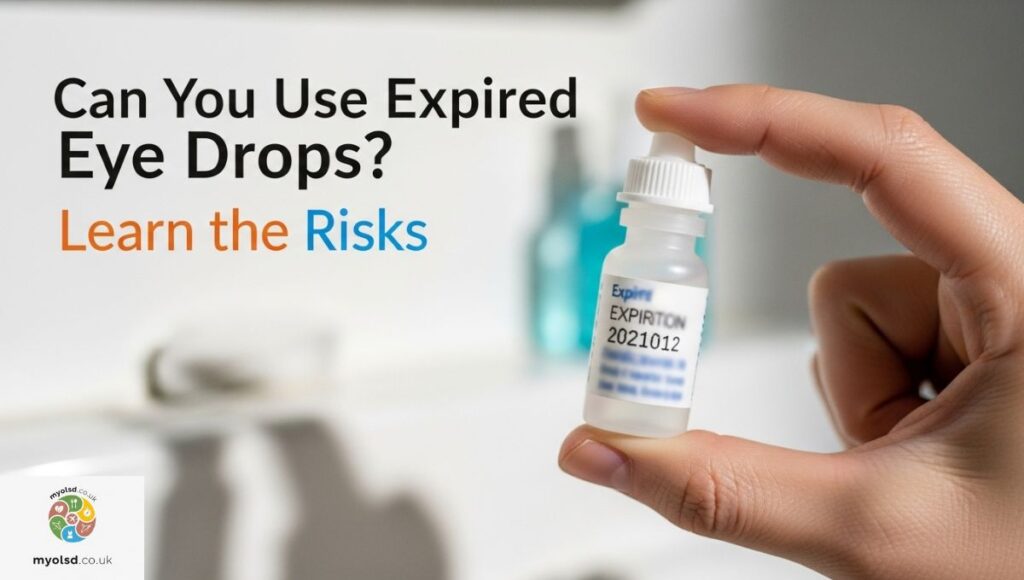
So, back to the main question: is it ok to use eye drops that are expired? The simple answer is no. The risks of chemical changes, sterility concerns, and contamination outweigh any potential benefit of finishing an old bottle.
If cost is a concern, it’s better to buy smaller bottles you can finish in time. It may feel wasteful to toss half-used drops, but it’s safer than risking prolonged infection or vision damage.
Key Takeaways
- Eye drops expire because of reduced potency, weakened preservatives, and contamination risk.
- Preservative-free drops spoil faster and must be discarded immediately after use.
- Expired antibiotic or steroid eye drops are especially unsafe.
- Look for signs like foul odor, cloudiness, or residue buildup as warnings.
- Safe disposal and proper storage are essential for eye health.
How to Dispose of Expired Eye Drops Safely
Expired medication should never just be tossed in the trash where children or pets might find it. Instead:
- Ask your pharmacy if they accept drop-off disposal.
- If discarding at home, seal bottles in a plastic bag before throwing away.
- Never flush eye drops down the toilet it contributes to environmental contamination.
Safe disposal protects both your health and the environment.
When Should You Visit an Eye Care Professional?
Sometimes expired drops are a symptom of a bigger issue: keeping old prescriptions for reuse. If your condition persists, worsens, or you notice symptoms like pain, discharge, floaters, or blurred vision, it’s time to see an optometrist or eye doctor.
Your eye care professional can recommend fresh treatment, check for infections, and give guidance on safe usage. Don’t rely on expired bottles when urgent treatment is needed.
Get Eye Health Advice at Calgary Optometry Centre

At the end of the day, your vision is too important to risk on expired products. Whether you’re dealing with dry eyes, need antibiotic treatment, or just want safe artificial tears, fresh and properly stored drops are the only way to go.
If you’ve been wondering, is it ok to use eye drops that are expired? Now you know why the answer is no. Protect your eyes by checking expiration dates, storing bottles correctly, and consulting an eye care professional when in doubt.
Conclusion
Many people wonder, is it ok to use eye drops that are expired, especially when they find an old bottle lying around? The truth is, expired drops may lose potency, carry a higher risk of contamination, and even cause irritation or infection.
If you’re still asking yourself, Is it ok to use eye drops that are expired, the safe answer is no. Always check the expiration date, follow proper storage directions, and replace old bottles with fresh ones to protect your vision and overall eye health.
FAQs
What happens if you use expired eye drops?
Using expired eye drops can reduce their effectiveness and may increase the risk of eye irritation, infection, or allergic reactions.
Does it matter if eye drops are out of date?
Yes, expired eye drops can lose potency and may harbor bacteria or fungi, making them unsafe for use.
What is the usual expiry date of eye drops?
Unopened eye drops typically last 1 to 2 years, while opened bottles should be discarded after 28 to 30 days, depending on the type and preservatives.
What are the signs that eye drops have gone bad?
Cloudiness, discoloration, foul odor, residue buildup, or a change in consistency are common signs of spoiled eye drops.
What do expired eye drops feel like?
They may cause stinging, burning, redness, or irritation instead of relief, and could feel thicker or grainier compared to fresh drops.
How do I know if my eyedrops are safe?
Check the expiration date, inspect for cloudiness or unusual smell, and ensure proper storage. When in doubt, discard them.
What happens if I use bad eye drops?
Using bad drops can lead to infections, eye irritation, worsening symptoms, or even vision damage in severe cases.

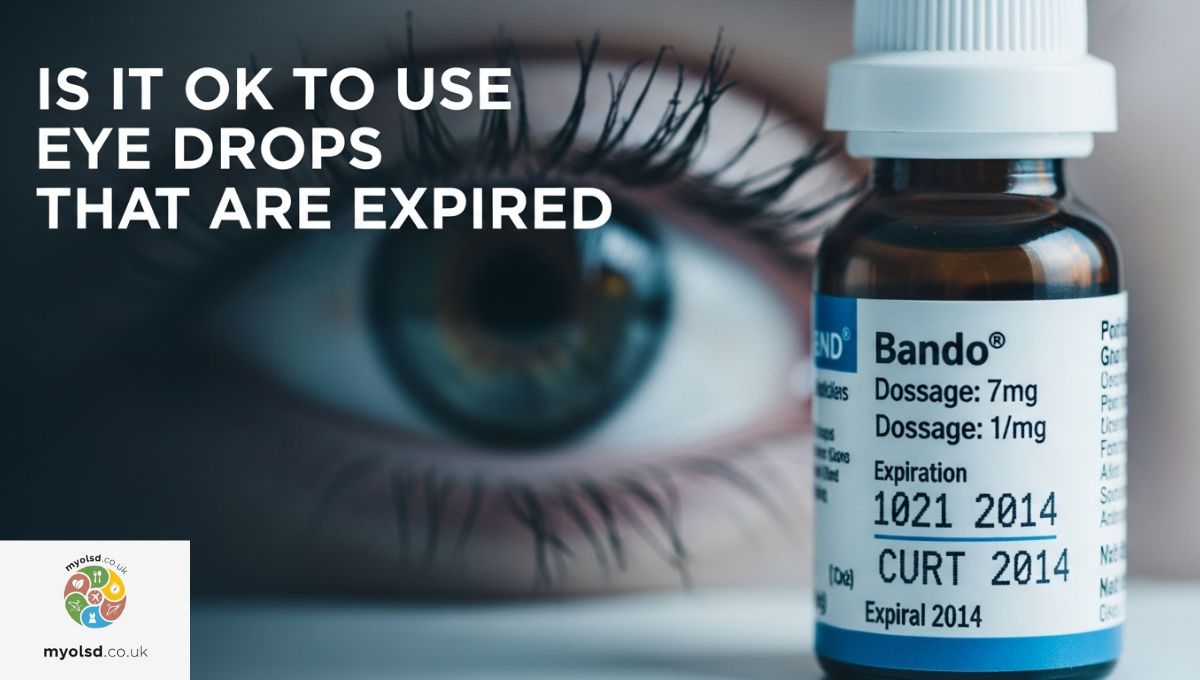
2 thoughts on “Is It Ok to Use Eye Drops That Are Expired? Risks, Safety, and What You Should Know”